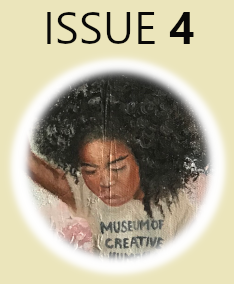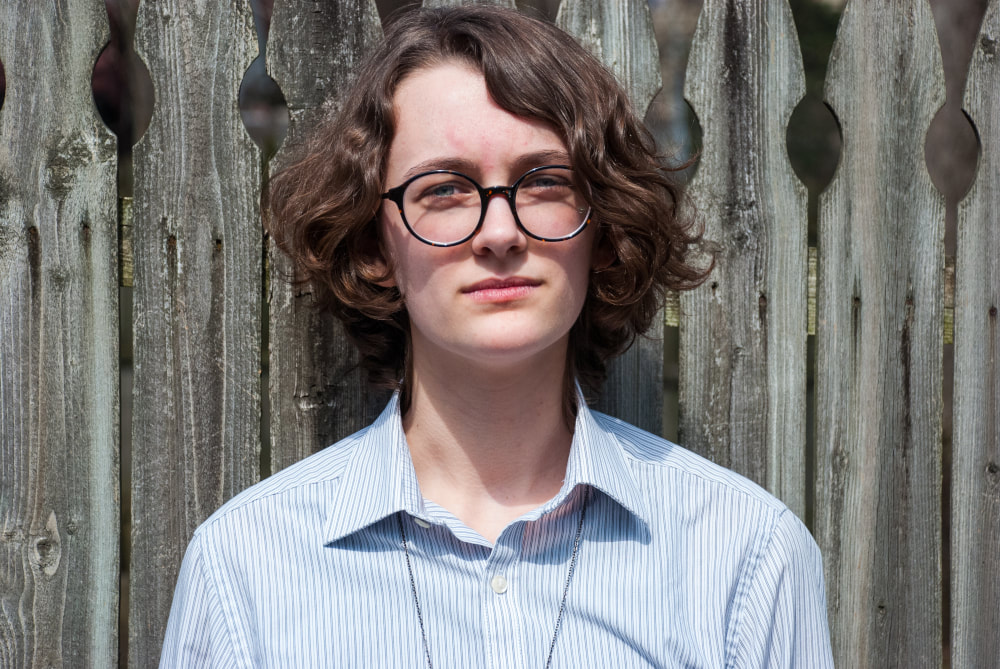|
NORTHEAST OHIO SPOTLIGHT
|
Blueberry HillFiction by Hannah Christopher
It was like this when Mom died. I sat at the dinner table. Under a deep white crescent of crystalline light swinging from the ceiling fan on in the kitchen. The pull-chords rattled against one another. Dad cooked by the stovetop. Garlic bread and spaghetti. The tomato sauce, made from tomatoes Mom grew in her garden in the backyard and canned already for fall and winter, popped as it prepared itself for the final meal. Mom didn’t have time enough to stand up. In three seconds she was on all fours running out the back door. She broke through the screen with the flat of her head leaving behind a mangled shoulder-high hole to the outside. The leaves were turning color and behind them the sky was turning color too, a similar fragrant orange-navy over the lake called Sebago. Dad called her name through the hole. For days he called her name into their landline. He reported a woman with black hair missing after twenty-four hours. He reported a big black wolflike dog missing. No she doesn’t have her identification tags, he insisted. Does she have a chip? He had to remember that for a few moments, then he came back to himself. I watched him pace the living room in his bare feet and underwear. Yes, he said, she does have a microchip in her left arm. I mean her front left leg, thanks. He rubbed his eyes and hung up the phone. |




